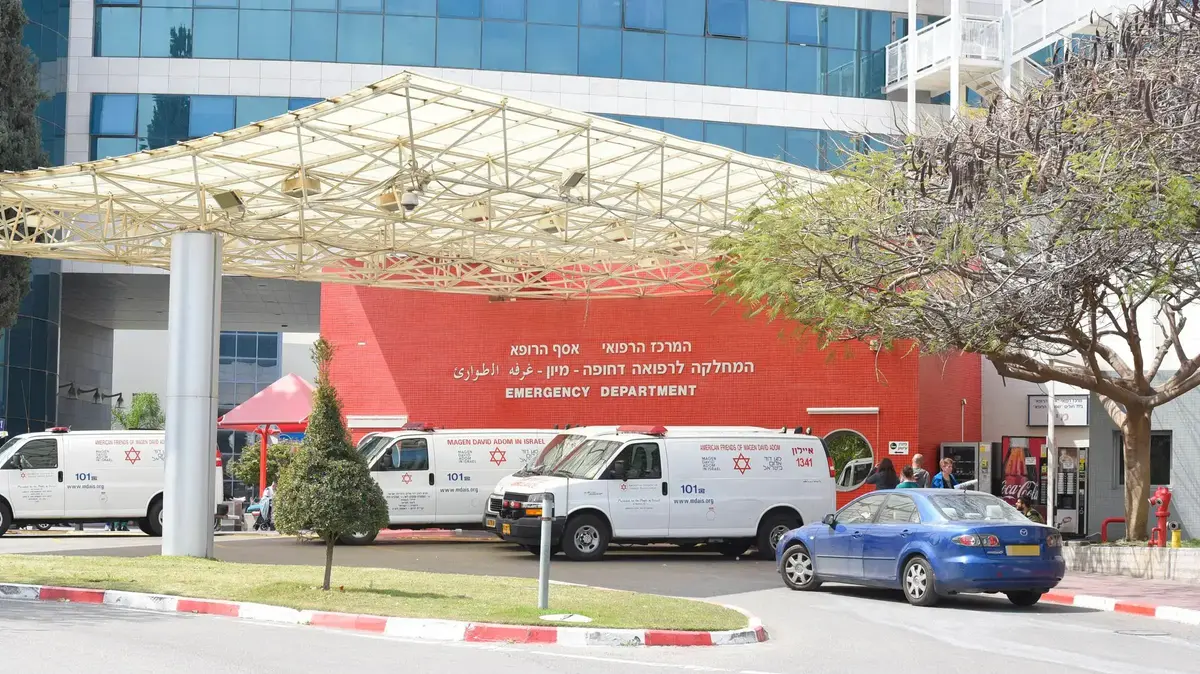A toddler from the center was hospitalized with a violent bacterium; Her preschoolers underwent preventative care
A Ramla toddler diagnosed with a meningococcal B-type bacterium was hospitalized earlier this week, and a Department of Health staff treated children staying with her to prevent infection, recommending those who have "close contact" with her to undergo similar treatment. The bacterial disease has no distinct symptoms and is therefore difficult to detect
A toddler from the center was hospitalized with a violent bacterium; Her preschoolers underwent preventative care
Photo: Niv Aharonson, Edit: Snir DabushA four-and-a-half-year-old toddler from Ramla was diagnosed with a meningococcal B-type violent bacterium and was admitted to Assaf Doctor Hospital - Wednesday, Walla learned! NEWS. A message was given to parents of preschoolers earlier this week, and yesterday they were treated with preventative care by a staff of the Ministry of Health that came to the institution.
The Ministry of Health emphasized that in the case of Meningococcus B morbidity, there are international guidelines for preventative antibiotic treatment. The statement sent to the parents states that preventive care needs the family of the patient who lives with him at home, and people who are in close contact with him, and have been exposed to the patient's respiratory discharge. It also states that people who stayed in the same room with the patient, ate with him or played with him - they should receive preventative care. "Only close contacts are considered at high risk of bacterial morbidity," it was made clear.
More in Walla! NEWS
Fear of the flu: Less than 78,000 vaccine doses remain at the HMOs Look for the red stickers: Food marking reform launches 70,000 unmistakable: Proven treatment for knee pain and back contentAssaf doctor's hospital (Photo: Reuven Castro)
Assaf Doctor Hospital, April 2, 2017 (Photo: Reuven Castro)
Last month, four restrained children were diagnosed with the violent bacteria, three of whom were hospitalized. In April, the death of a 1-year-old baby was determined as a result of infection with the violent bacteria. In Israel, there are about 20 cases of serious illness each year, and at least two babies die each year as a result of the bacterium, and four more remain with severe and irreversible damage.
The violent bacterium causes invasive meningococcal disease, which is mainly expressed in meningitis and sepsis, leading to the collapse of the body's organs. The disease develops very quickly, within 24-48 hours and leads to life-threatening. One in ten babies infected with a bacterium is expected to die from the disease, and about 20% will suffer from neurologic, deaf, organ amputation and more.
More in Walla! NEWS More in Walla! NEWSFirst publication: Edelstein delays the hearing on the establishment of a committee to discuss Netanyahu's immunity
To the full articleInfants are 10 times more likely to develop the disease
The disease caused by the violent bacterium has no distinct symptoms and is therefore difficult to detect, and it first appears to be a normal flu. When there are distinct signs, a rash that does not pass when pressed and cold at the fingertips, the disease is already in advanced stages. The disease may also attack adults, but infants are the most sensitive population - they are ten times more likely to develop the disease from the time of exposure to the bacterium. Children aged one to five are also more susceptible to morbidity and their risk of developing a disease is three times higher than adolescents.
The vaccine for the disease is currently given through supplementary health insurance, called "Baxro." It is approved for use from the age of two months. The vaccine is produced by genetic engineering, a unique process through which the bacteria's genes are mapped and produced appropriate antigens that act against it. The vaccine offers 95% -100% immune protection after the vaccine series is completed. The recommended age for receiving the first vaccine dose is two months. The second dose is recommended at four months and the third dose at six months. It is recommended to vaccinate infants and children living in a home where there is a baby, which they may infect.

